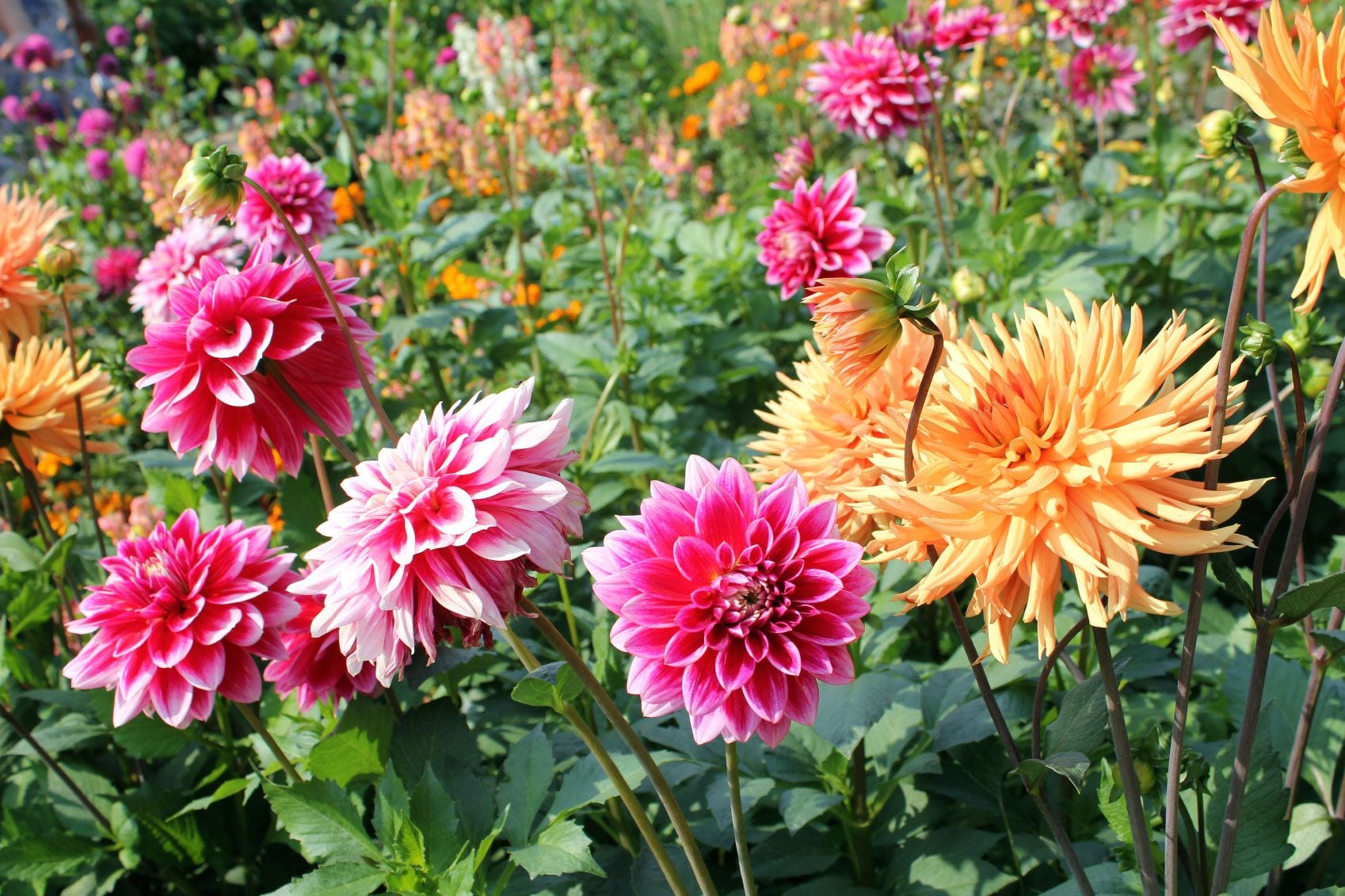Dahlia Care: How To Grow A Dahlia Plant


Sign up for the Gardening Know How newsletter today and receive a free copy of our e-book "How to Grow Delicious Tomatoes".
You are now subscribed
Your newsletter sign-up was successful
If you have ever been to a state fair, you have probably seen a pavilion filled with exotic and amazing dahlia blossoms. These hugely varietal flowers are a collector's dream, with little starburst blooms to plate-sized flowers in every hue imaginable. Dahlias are relatively sturdy plants if grown in the right lighting, heat, and soil. Care of dahlia flowers may vary dependent upon your zone, but here are a few dahlia growing tips to help you get maximum blooms and healthy, bushy plants.
How to Grow a Dahlia Plant
Dahlias are classified according to flower shape and petal arrangement. The plants are borne from tubers, which require well-drained soil and plenty of sunlight. Caring for dahlia plants starts at installation with the cultivation of the soil and healthy tubers. Learning how to grow a dahlia plant will likely lead to a hobby, as the spectacular blooms are quite addictive and the presence of one or two will lead to plenty more in subsequent seasons. Select healthy tubers of a variety that does well in your zone. The outside of the tuber should be firm with no mold or rotten spots. Prepare the garden bed. These plants prefer well-drained, acidic loam but will grow relatively well in any soil as long as it isn't soggy. Dig down 8 to 12 inches (20.5 to 30.5 cm.) and add compost to increase the porosity and nutrient density since dahlias are big feeders. A good dahlia growing tip is to take this time to incorporate 2 pounds per 100 square feet (1 kg. per 9.5 sq. m.) of a 5-10-15 fertilizer. Small plants can be spaced 12 inches (30.5 cm.) apart, but the big dahlias need to be planted 3 feet (1 m.) apart to accommodate the large bushes. Lay the tuber sprout-side up 3 inches (7.5 cm.) deep in a trench and cover it over with the prepared soil.
Dahlia Care
Dahlias need to be kept weed-free. Use organic mulch around the plants to prevent weeds and conserve moisture. Pinch back the terminal buds when the plant is 15 inches (38 cm.) tall to enforce good branching and structure and increase budding. Provide plenty of water to your plants. Water plants deeply once or twice per week. Big dahlias need a support structure to keep the heavy blooms from bending to the ground. Fertilize monthly with a water-soluble fertilizer or twice during the growing season use ½ cup (120 mL.) 5-10-10 scattered around the root zone of the plants. Good dahlia care also includes pest management.
Caring for Dahlia Plants in Winter
Dahlias are hardy to zone 8 and will survive if cut back and mulched heavily. Pull away the mulch in spring to allow new shoots to come up. In cooler zones, the tubers need to be stored indoors until spring. Dig at least a foot (30.5 cm.) away from the plant and lift the tuberous clump. Brush off excess dirt and lay them in a dry, but shady, location for a few days. Remove the remainder of the dirt and check the tubers for damage or disease. Pack healthy tubers upside down in a basket nestled in damp peat moss, vermiculite, or perlite. Check tubers every month, and if they begin to shrivel, mist them with water. Remove any that get diseased. You can also dust the tubers with antifungal powder before storing them. In the spring, replant the tubers and follow the above program for good care of dahlia flowers.
Sign up for the Gardening Know How newsletter today and receive a free copy of our e-book "How to Grow Delicious Tomatoes".

Bonnie Grant is a professional landscaper with a Certification in Urban Gardening. She has been gardening and writing for 15 years. A former professional chef, she has a passion for edible landscaping.